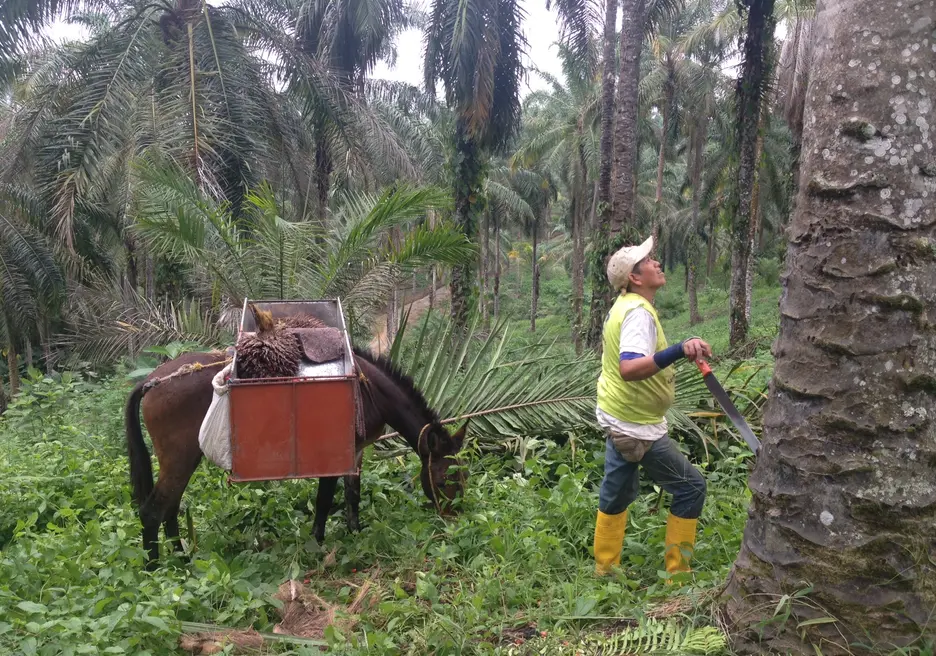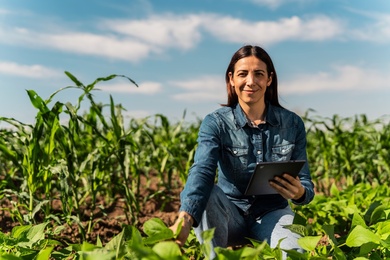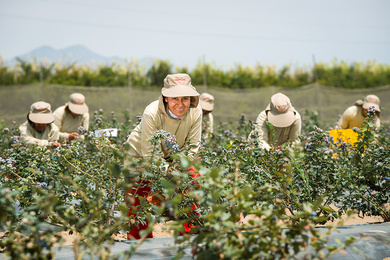Six Takeaways on the Growth of Palm Oil in Latin America

[caption id="attachment_3165" align="alignleft" width="342"] Raw palm oil fruit at collection site[/caption]
Raw palm oil fruit at collection site[/caption]
It’s an important time for our region to consider these tradeoffs. Palm oil production is growing quickly in Latin America and the Caribbean (for example, Colombia aims to increase production by a factor of six by 2020 and Honduras plans to plant an additional 100,000 hectares). Will the increase in palm oil lead to rampant deforestation and social problems as it has in Southeast Asia?
Here at the IDB, we are studying one way of improving palm oil’s impact: the Roundtable on Sustainable Palm Oil, which is an organization of stakeholders in the palm oil sector. In a nutshell, RSPO requires that RSPO-certified palm oil meet a number of social and environmental criteria. For instance, RSPO-certified companies may not clear forests with “high conservation values.”
There is a lot of debate over the effectiveness of RSPO and so we wanted to evaluate it from a perspective from the region.
Working with an Ecuadorian palm oil processor and Nes Naturaleza, we studied RSPO from two angles: the costs and benefits of the certification and the potential environmental and social impacts. Here are six takeaways:
1) Most palm oil producers are small and vulnerable; 86% of the producers we surveyed had fewer than 50 hectares.
2) Palm oil expansion is driving deforestation in Ecuador; contamination of water resources is another negative impact related to palm oil. If palm oil producers meet RSPO criteria, these negative impacts will be significantly reduced.
3) Only 50% of workers in palm plantations are registered for the national social security system. RSPO certification would require all workers to register and would be a major social benefit.
[caption id="attachment_3170" align="alignleft" width="505"] Estimated productivity for small producers with and without RSPO. Productivity is low in early years before it plateaus in year 8.[/caption]
Estimated productivity for small producers with and without RSPO. Productivity is low in early years before it plateaus in year 8.[/caption]
4) The primary benefits from RSPO to the producer come from improving the productivity of their plantations. Many Ecuadorian producers, especially producers with fewer than 50 hectares, have low productivity and the improvement in farm management practices associated with RSPO helps to improve productivity by 20-40 percent.
5) For most small producers, the costs of implementing RSPO are greater than the benefits. Despite the increase in productivity, the costs associated with RSPO (more than 50 percent of costs are related to changing farm management practices) are often too high for producers with fewer than 50 hectares. Due to economies of scale, medium and large scale producers do see a benefit from getting certified.
6) Palm oil mills benefit from the increased quantity of raw fruit supplied by their producers and from the price premium associated with RSPO. They have an incentive to assume some of the producers’ RSPO certification costs.
LIKE WHAT YOU JUST READ?
Subscribe to our mailing list to stay informed on the latest IDB Invest news, blog posts, upcoming events, and to learn more about specific areas of interest.
Subscribe



